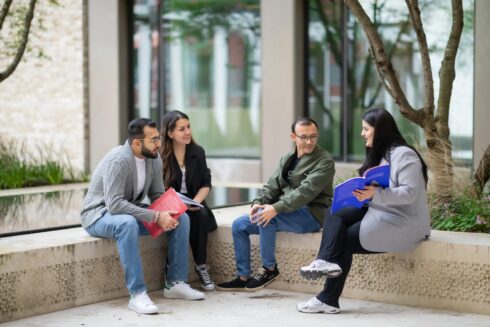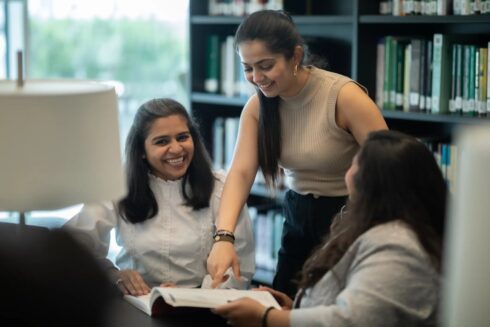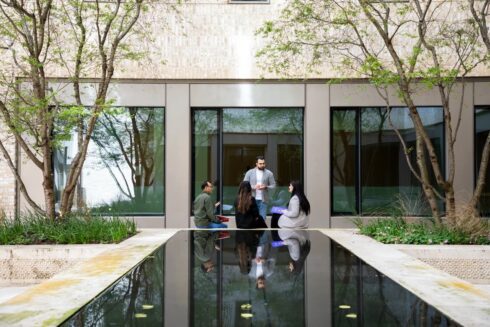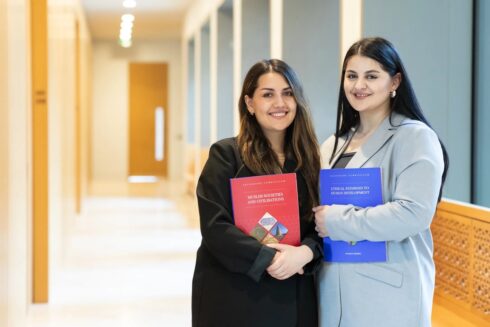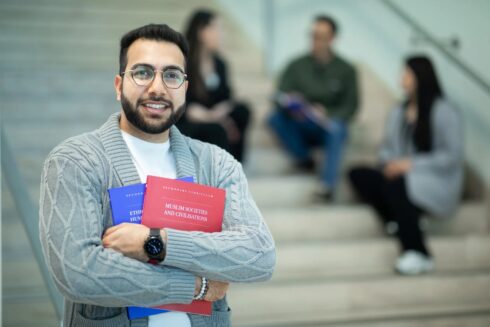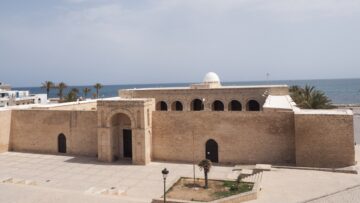Secondary Teacher Education Programme
-
Status
Closed -
Location
London -
Apply by
20 Oct 2025
STEP caters directly for students wishing to embark upon a career in teaching, with a particular focus on teaching at the Ismaili Religious Education Centres (RECs) at the secondary level worldwide.
Students are trained to teach humanities and religious studies with a particular emphasis on the IIS’ Secondary Curriculum which explores the humanistic, civilisational and normative dimensions of religious education. STEP extends over two academic years and culminates in two postgraduate awards (Level 7):
- A Master of Arts (MA) in Muslim Societies and Civilisations, from SOAS University of London, and
- A Postgraduate Diploma (PGDip) in Teaching and Reflective Practice, from UCL.
Tailor-made for STEP, the MA and the PGDip form a bespoke programme specifically designed with the needs of STEP students, the Ismaili Tariqah and Religious Education Boards (ITREBs) who employ them, and the communities they serve. The programme equips students with the tools and knowledge to take responsibility for their personal learning and continuous professional development beyond STEP.
The PGDip provides an innovative teacher education programme including teaching practice. The MA is designed to provide in-depth study of Islam and Muslim societies and civilisations to enable STEP graduates to teach the Institute’s Secondary Curriculum with competence and confidence, and in a manner which uses pedagogical approaches appropriate to the contexts.
Through the Programme, students will develop:
- reflective and critical stances, creativity and independence of thought in the application of knowledge;
- sound knowledge of subject matter relevant to IIS’ Secondary Curriculum;
- a holistic understanding of educational practice and effective classroom skills informed through field-based work and practice;
- a critical understanding of curriculum implementation, evaluation, and assessment, particularly in relation to IIS’ Secondary Curriculum.
The MA in Muslim Societies and Civilisations offers students a systematic and critical interdisciplinary examination of Muslim histories, cultures and societies.
It helps develop:
- sound scholarly skills,
- capacity for critical analysis,
- methodological and research skills,
- clear communications skills.
The MA is aimed at:
- Developing and cultivating a systematic understanding and engagement with subject knowledge pertaining to the interdisciplinary field of Islamic Studies, with particular focus on societal, civilisational and humanistic-informed approaches.
- Fostering capacity to conduct an insightful and critical review of relevant literature in all pertinent subject areas, as well as creativity and independence of thought in the application of knowledge.
- Fostering capacity to critically evaluate current issues and recent developments in the field and arrive at sound critical insights using research methodologies in the study of humanities and social sciences in Muslim contexts.
- Develop a range of practical and intellectual skills that contribute to:
- the critical evaluation of scholarship, literature and research in Islamic studies, religious studies, and the humanities at the postgraduate level;
- a systematic understanding of how established and emerging techniques of research and enquiry are used to create and interpret knowledge;
- independence of thought in the application of knowledge, and the creative and critical handling, presenting and analysis of data.
- 5. Acquiring a systematic grasp of established and evolving ways of communication and presentation for this field of study, while producing postgraduate-level coursework that shows criticality, clarity, focus and cogency in organisation and presentation of arguments and conclusions.
Upon successful completion of the MA, students acquire a series of subject-specific knowledge and intellectual skills, as well as subject-based practical and transferable skills.
The PGDip provides a comprehensive teacher education programme, fostering academic rigour as well as practical understanding and application of theories. The approach integrates academic theory with a well-supported teaching practice.
As a STEP student you will be provided with learning opportunities to develop high academic and professional standards and to apply critical reflection as a basis for personal continuous professional development beyond the course. We will encourage you to learn how to contextualise curricula and transfer theories and practical strategies from one context to another.
Successful graduates should:
- Understand key aspects of the field of study and practice (e.g. understanding learning theories, teaching strategies and reflective practices, how to lead learners, learning in specific contexts, and how to develop classroom materials).
- Be able to explore, analyse, discuss, and reflect critically, systematically and with academic rigour on teaching and learning and teachers’ roles within communities of practice and as curriculum developers.
- Be able to communicate their own learning and development in a range of outputs.

